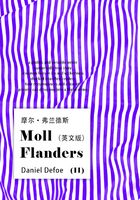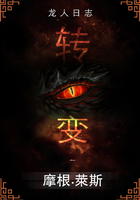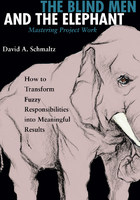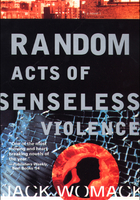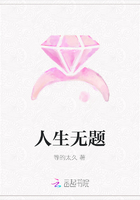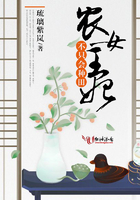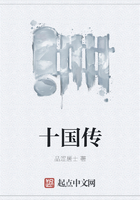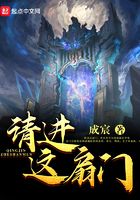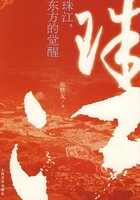PARIS, OCTOBER 1893
When one fall morning in 1893 a knock came at the door of his studio in Paris at number 6, rue Vercingétorix, Paul stood open-mouthed in astonishment: the tiny dark-skinned woman-child in front of him was dressed in a tunic like the habit of a Sister of Charity, with a little monkey on her arm, a flower in her hair, and around her neck a sign that read: "I am Annah from Java. A gift for Paul, from his friend Ambroise Vollard."
As soon as he saw her, before he had even recovered from his bewilderment at receiving such a present from the young dealer, Paul wanted to paint. It was the first time he had felt the urge since his return to France, on August 30, after his ill-fated three-month voyage from Tahiti. Everything had gone wrong. He had disembarked in Marseille with only four francs in his pocket and arrived dazed and half dead of hunger in a blazingly hot Paris deserted by his friends. In the two years he had been away in Polynesia, the city had become strange and hostile. The exhibition of his forty-two "Tahitian paintings" at Paul Durand-Ruel's gallery had been a failure. Only eleven were sold, and the proceeds didn't make up for what he had been required to spend on frames, posters, and publicity, going into debt again. Although some of the reviews were favorable, he had felt ever since that the Paris art world was shutting him out, or treating him with disdainful condescension.
Most depressing had been the blunt way in which Camille Pissarro, your old teacher and friend, had summarily dismissed your Tahitian theories and paintings. "This art isn't yours, Paul. Go back to being what you used to be. You are a creature of civilization, and it is your duty to paint harmonious things, not to imitate barbarous cannibal art. Listen to me. Turn back now; stop pillaging from the savages of Oceania and be yourself again." You hadn't argued. You had just said goodbye with a bow. Not even the affectionate gesture of Degas, who bought two paintings, could lift your spirits. Many artists, critics, and collectors shared Pissarro's harsh opinions: What you had painted while you were away in the South Seas was a cheap imitation of the superstitions and idolatry of primitive beings, light years away from civilization. Was that what art was supposed to be? A return to the scrawls, blots, and magic of cave dwellers? But it wasn't just a rejection of the new themes and techniques of your painting, acquired with so much sacrifice over the last two years in Tahiti. It was also a stifled, murky, twisted rejection of you personally. Why? Because of the mad Dutchman, no less. After the tragedy at Arles, Vincent's stay in the Saint-Rémy madhouse, and his suicide—and especially after the death of his brother, Theo van Gogh, also at his own hand—Vincent's paintings (which no one was interested in while he was alive) began to attract notice, to sell, to rise in value. A morbid fashion for van Gogh was born, and with it everyone in the painting community began to retroactively reproach you for having been incapable of understanding and helping the Dutchman. Bastards! Some added that you might even have provoked the mutilation in Arles, with your proverbial lack of tact. You didn't need to hear them to know that they were pointing at you and whispering behind your back at parties, social gatherings, galleries, cafés, salons, and studios. The calumnies filtered through in magazines and newspapers, in the oblique way in which the Paris press generally commented on the news of the day. Not even the providential death of your father's brother, Uncle Zizi, a bachelor in his eighties in Orléans, who left you several thousand francs, which arrived in time to rescue you for a while from poverty and debts, could revive your enthusiasm. How long would you continue in this state, Paul?
Until the morning that Annah from Java, with that picturesque sign around her neck, and with Taoa, her scampering, sarcastic-eyed monkey on a leather leash, came swaying like a palm to share the exotic, light-filled retreat into which Paul had converted the studio he rented on the second floor of an old building in a corner of Montparnasse. Ambroise Vollard had sent her to be his servant. That was what Annah had been before in an opera singer's house. But that same night, Paul made her his lover. She soon became his companion in games, fantasies, and pranks, and finally his model. Where was she from? Impossible to say. When Paul asked her, Annah told him a story riddled with so many geographic contradictions that doubtless it was all a fabrication. Maybe the poor girl didn't even know and was inventing a past as they spoke, revealing her prodigious ignorance of the planet's countries and continents. How old was she? She said seventeen, but he calculated that she was younger, perhaps only thirteen or fourteen, like Teha'amana; at the age—which so aroused you—when the early-blooming girls of primitive countries enter adulthood. Her breasts were developed and her thighs firm, and she was no longer a virgin. But it wasn't the clean-limbed little body of the companion he was vouchsafed by ungrateful Paris—a slip of a thing, a perfect miniature, beside the bulk of forty-five-year-old Paul—that immediately seduced him.
It was her dark, ashy mixed-blood face; her fine, sharp features—the little turned-up nose, the thick lips inherited from her Negro ancestors—and the liveliness and insolence of her eyes, which showed unrest, curiosity, mockery of everything she saw. She spoke a foreigner's French, exquisitely flawed, with such vulgar utterances and expressions that Paul was reminded of the port-city brothels of his sailor youth. Despite having absolutely nowhere to go, not knowing how to read or write, and possessing nothing but her monkey Taoa and the clothes on her back, she exhibited a regal arrogance in her self-possession, her posturing, and the sarcastic remarks she made about everyone and everything, as if nothing deserved her respect and society's conventions did not apply to her. When she didn't like something or someone, she would stick out her tongue and make a face that Taoa imitated, screeching.
In bed, it was hard to tell if she was enjoying herself or pretending. In any case she gave you pleasure, and she entertained you at the same time. Annah gave you back what you were afraid you had lost since your return to France: your desire to paint, your sense of humor, your will to live.
The day after Annah appeared in his studio, Paul took her to a shop on the boulevard de l'Opéra and bought her clothes, which he helped her to choose. They bought boots, too, and half a dozen hats, which Annah loved. She even wore them inside, and they were the first thing she put on when she got out of bed. Paul would shake with laughter when he saw her dancing naked toward the kitchen or the bathroom with a stiff canotier on her head.
Thanks to Annah's gaiety and inventiveness, the studio on the rue Vercingétorix became a place for gatherings and festivities on Thursday afternoons. Paul would play the accordion, sometimes dressing in a Tahitian pareu and covering his body with fake tattoos. Old friends came to the soirees with their wives and lovers: Daniel de Monfreid and Annette, Charles Morice with a daring countess who was sharing his poverty, the Schuffeneckers, the Spanish sculptor Paco Durrio, who sang and played the guitar, and a pair of neighbors, two Swedish expatriates—the sculptor Ida Molard and her husband, William, a composer—who sometimes brought along a countryman of theirs, a half-mad playwright and inventor called August Strindberg. The Molards had an adolescent daughter, Judith, a restless, romantic girl who was fascinated by the painter's studio. Paul had hung yellow wallpaper, painted the window frames in shades of amber, and crowded the room with his Tahitian paintings and sculptures. Spikes of vegetation, bright blue skies, emerald seas and lagoons, and voluptuous naked bodies seemed to leap from the walls. Before Annah appeared, Paul had kept a certain distance from his Swedish neighbors' daughter, amused by her obvious infatuation and never touching her. But since the arrival of exotic Annah, who roused his senses and fantasies, he began to play teasingly with Judith, too, when her parents were nowhere near. He would catch her around the waist, brush her lips, and squeeze her budding breasts, whispering, "This will all be mine, won't it, young lady?"
Terrified and pleased, the girl would nod. "Yes, yes, all yours."
And so it occurred to him to paint the Molards' daughter nude. He proposed it to her, and Judith, white as a sheet, didn't know what to say. Nude, entirely nude? Of course—weren't artists always painting and sculpting nude models? No one would know because, after completing it, Paul would hide the painting until Judith grew up. Only when she was a full-grown woman would he show it. Would she accept? In the end, she did. They had only three sessions, and the adventure almost ended in disaster. Judith would come up to the studio when her mother, Ida, who nourished a charitable passion for animals, went out with Annah on expeditions around Montparnasse in search of sick or hurt abandoned dogs and cats, which they would bring home, care for, cure, and find adoptive parents for. The girl, naked on some brightly colored Polynesian blankets, never lifted her eyes from the floor; she shrank and curled into herself, trying to make herself as invisible as possible to the eyes probing her secrets.
By the third session, when Paul had sketched Judith's spindly silhouette and little oval face with big frightened eyes, Ida Molard burst into the studio shrieking like a player in a Greek tragedy. It was hard work to calm her down, to convince her that your interest in the child was purely aesthetic (was it, Paul?), that you had respected her, that your desire to paint her nude was thoroughly innocent. Ida would be pacified only when you swore that you would abandon the project. In front of her you drenched the unfinished canvas with turpentine and scraped it with a palette knife, obliterating the image of Judith. Then Ida forgave you and you had tea together. Sulky and scared, the girl listened in silence as they talked, without joining in their conversation.
When, some time later, Paul decided to do a nude portrait of Annah, he had a brilliant idea: he would superimpose the image of his lover over the unfinished study of Judith. And so he did. The painting took him a long time because of the incorrigible Annah. She was the fidgetiest and most unmanageable model you would ever have, Paul. She was always moving, changing her pose, or, when she was bored, pulling faces to try to make you laugh—the favorite Thursdayevening game, along with spiritism—or, tired of posing, she would simply get up, toss on some clothes, and run outside, as Teha'amana would have done. There would be nothing else to do but put your brushes away and stop work until the next day.
Painting this portrait was your response to the offensive reviews and talk about your Tahitian paintings that you had been reading and hearing everywhere since the Durand-Ruel exhibition. It was a canvas painted not by a civilized man, but by a savage, by a wolf on two feet, without a collar, only passing through the prison of cement, asphalt, and prejudices that was Paris before returning to your true home in the South Seas. The refined artists of Paris, its finicky critics, its polite collectors, would feel their sensibilities, their moral standards, their tastes assaulted by this frontal nude of a girl who not only was not French, European, or white but also had the gall to show her breasts, navel, mound of Venus, and tuft of pubic hair as if defying anyone to confront her, to face her with a life force, exuberance, or sensuality as strong as hers. Annah hadn't asked to be what she was; she didn't even realize the incandescent power she derived from her origins, her blood, the untamed forests where she was born, just like a panther or a cannibal. How superior you were to ossified Parisian women, Annah!
It wasn't only the body gradually appearing on the canvas—the head darker than the burnished ocher and gold of the torso and thighs, and the big feet with nails like the claws of a beast—that was provocative; it was also the surroundings, as inharmonious as it was possible to imagine, with Annah arranged in a sacrilegious and obscene pose in a Chinese armchair of blue velvet. The wooden arms of the chair were two Tahitian idols you had invented, one on each side of Annah, like an abjuration of the West and its insipid Christian religion in the name of lusty paganism. And there was the unexpected presence, on the green cushion where Annah's feet rested, of those luminous little flowers that had been straying into your paintings ever since you discovered Japanese prints, when you first began to paint. Studying the symbolism and subtlety of those prints, you had had your first inkling of what you now saw clearly at last: that European art was ailing, infected by the consumption that killed so many artists, and that only a revitalizing bath in the primitive cultures not yet exterminated by Europe, where an earthly paradise still existed, would rescue it from decadence. The presence on the canvas of Taoa, the red monkey looking half pensive and half lackadaisical at Annah's feet, reinforced the nonconformity and stifled sexuality that suffused the whole painting. Even the apples floating on the pink background over Annah's head skewed the symmetry, conventions, and logic fervently worshiped by the artists of Paris. Bravo, Paul!
Though it proceeded extremely slowly because of Annah's tendency to wander, the work was stimulating. It was good to paint with conviction again, knowing that you were painting not only with your hands but also with your memories of the landscapes and people of Tahiti—you missed them terribly, Paul—with their ghosts, and, as the mad Dutchman liked to say, with your phallus, which sometimes, in the middle of a session, would swell at the sight of the naked girl and compel you to take her in your arms and carry her to bed. Painting after making love, with the smell of semen in the air, made you feel young again.
Since coming back from Tahiti, he had written to tell the Viking that as soon as he sold a few paintings and had enough money for the ticket, he would travel to Copenhagen to see her and the children. Mette answered with a letter in which she declared herself surprised and hurt that he hadn't rushed to see his family as soon as he set foot in Europe. Inertia got the better of him each time a picture of his wife and children came to his mind. That again, Paul? You, a family man again? The legal proceedings required to claim the small inheritance from Uncle Zizi, the appearance of Annah in his life, and the desire she awakened in him to paint again made him keep postponing the family reunion. When spring came, he decided impetuously to take Annah to Brittany, to his old retreat of Pont-Aven, where he had spent so many seasons and had begun to be an artist. It wasn't just a return to his origins. He wanted to reclaim the works painted there in 1888 and 1890, left with Marie Henry in Le Pouldu in exchange for room and board; since he was always penniless, he had invariably paid late, only in part, or never. Now, thanks to Uncle Zizi's francs, he could settle his debt. You remembered those canvases with apprehension, because you were a more mature painter now than the simpleton who went to Pont-Aven believing that in the depths of mysterious, religious, tradition-bound Brittany he would find the roots of the primitive world dessicated by civilized Paris.
His arrival in Pont-Aven caused true commotion, not so much on his account but because of Annah and the capering and shrieks of Taoa, who had learned to leap from her mistress's arm to Paul's shoulder and back, waving her arms. As soon as he arrived, he learned that Charles Laval—his companion on his adventures in Panama and Martinique—had died in Egypt, and that his wife, the beautiful Madeleine Bernard, was very ill. This news depressed you, as did memories of your old friends, the artists with whom you had lived out your Brittany dreams years ago: Jacob Meyer de Haan, a recluse in Holland where he was devoted to mysticism; émile Bernard, also in retreat from the world, immersed in religion and now speaking and writing against you, and good old Schuff, back in Paris, spending his days arguing with his wife instead of painting.
But in Pont-Aven he met new friends, young painters who knew and admired him for his paintings and his fame as an explorer of the exotic who had left Paris to seek inspiration in far-off Polynesia: Armand Seguin, émile Jourdan, and the Irishman Roderic O'Conor, who, like their lovers and wives, received him with open arms. They vied to pay him compliments, and they were as obsequious with Annah as they were with Paul. In contrast, Marie Henry—Marie the Doll—from the inn at Le Pouldu, stood firm, despite having greeted him affectionately: the paintings were not on loan or pawned. They had been given in payment for room and board. She would not return them. Though it was said now that they weren't worth much, in the future they might be. There was nothing to be done.
As the days went by, the cordial welcome that Paul and Annah had received from the townspeople of Pont-Aven gradually shifted to reticence and then mute hostility. This was because of the childish antics, the mischief making, and the sometimes astonishingly tasteless pranks with which O'Conor, Seguin, Jourdan, and some of the other young artists living in Pont-Aven amused themselves, egged on by Annah, who was delighted by the excesses of her bohemian companions. They got drunk and went out into the streets to torment the local women; they invented ridiculous plays in which Annah was always the heroine. Her shameless poses, silly grimaces, and torrential laughter stunned the townspeople, who scolded the group from their windows at night for their behavior, ordering them to be quiet. Paul participated from a distance in these farces, as a passive spectator. But his presence was a silent endorsement of his disciples' misbehavior, and the people of Pont-Aven considered him responsible, as the oldest and most important.
Most notorious was the chicken scandal, conceived by the incorrigible Annah. She convinced Paul's young disciples—that was what they called themselves—to sneak into old man Gannaec's henhouse, the best stocked in the region, and replace the chicks' water with cider to make them drunk. Then they dripped paint on the birds, opened the henhouse door, and shooed them toward the main square, where, as the town band played its Sunday concert, there burst an incredible stream of multicolored fowl that cackled raucously and turned in circles or fell over, discombobulated. The villagers' indignation was immense. The mayor and the parish priest presented their complaints to Paul, and urged him to rein in his rash friends. "Any day now this will come to a bad end," the priest declared.
And so it did. Weeks after the episode of the drunken, paints-pattered chickens, on the sunny day of May 25, 1894, the whole group—O'Conor, Seguin, Jourdan, and Paul, as well as their respective lovers and wives and Taoa—took advantage of the beautiful weather to walk to Concarneau, an ancient fishing port twelve kilometers from Pont-Aven, where the old walls and stone houses of the medieval quarter were still preserved. From the moment they stepped onto the seaside promenade along the port, Paul had the feeling that something unpleasant was going to happen. The taverns were full of fishermen and sailors who, sitting outside in the splendid sunlight, lowered their mugs of cider and beer in astonishment at the sight of the outlandish group—long-haired men in garish attire and flamboyant women, among whom, strutting like a circus performer, was a black woman leading a screeching monkey on a string and baring her teeth at them. There were exclamations of surprise and disgust, and the group noticed threatening gestures. "Begone, clowns!" Unlike the residents of Pont-Aven, the people of Concarneau weren't used to artists. And much less to a tiny black woman making faces at them.
Halfway down the promenade a cloud of children surrounded them, staring curiously, some smiling and others saying things in their crusty Breton that didn't sound very friendly. All at once, they began to throw little stones, pebbles they took from their pockets. They aimed especially at Annah and the monkey, which huddled against its mistress's skirts, frightened. Paul saw Armand Seguin move away from the group, catch up with one of the stone throwers, and seize him by the ear.
Then everything happened so fast that Paul would later remember it as vertiginous. Some fishermen from the nearest tavern got up and came running toward them. A few seconds later, Armand Seguin was flailing, shoved repeatedly by a big man in clogs and a sailor's cap who roared: "Only I am allowed to hit my son." Stumbling and falling, Armand was pushed back, back, and finally tumbled into the foamy sea that beat against the parapet. In a youthful impulse, Paul swung his fist at Armand's attacker and watched him collapse, bellowing, with both hands over his face. It was the last thing he saw, because seconds later, a windmill of men in clogs threw themselves at him, hitting and kicking from every direction all over his body. He defended himself as well as he could, but he slipped and felt his right ankle, crushed and cut open, buckle under him. The pain made him lose consciousness. When he opened his eyes, women's cries sounded in his ears. Kneeling at his feet, a medic showed Paul his naked leg—he had slit his trousers to examine it—where a splintered bone showed through the bloody flesh. "They've broken your tibia, sir. You'll have to spend a long time in bed."
Dizzy, in pain, nauseated, he remembered the return to Pont-Aven in a horse-drawn carriage like a bad dream, each pothole or bump making him howl. To help him sleep, he was given little swallows of a bitter cordial, which scratched his throat.
He spent two months in bed at the Pension Gloanec, in a little room with a very low roof and pygmy windows, which was turned into an infirmary. The doctor's verdict was disheartening: with his tibia broken, it was out of the question to return to Paris, or even to try to stand. Only with complete bed rest would the bone return to its proper place and knit; in any case, he would always limp and in the future he would have to use a cane. For the rest of your life you would remember the pains you felt in those eight weeks spent motionless in bed, Paul. Or rather, the single pain, blind, intense, animal, that drenched you in sweat or made you shiver, sob, and rave, certain that you had lost your mind. Tranquilizers and painkillers didn't help at all. Only alcohol, which you drank almost ceaselessly, numbed you and afforded you brief intervals of peace. But soon not even alcohol could ease the torment, which made you beg the doctor when he came each week, "Cut off my leg, please!" Anything to put an end to your infernal sufferings. The doctor decided to prescribe laudanum. The opium made you drowsy; in your stupor, that slow, spinning calm, you forgot your ankle and Pont-Aven, the Concarneau affair, and everything else. Only a single thought occupied your mind: "This is a sign. Leave as soon as possible. Return to Polynesia and never come back to Europe again, Koké."
After an unfathomably long time, and after a night in which he at last slept without nightmares, he awoke one morning with a clear head. The Irishman O'Conor was on guard beside his bed. Where was Annah? He had the feeling it had been many days since he had seen her.
"She went back to Paris," the Irishman told him. "She was very sad. She couldn't stay here after the neighbors poisoned Taoa."
That, at least, was what Annah assumed had happened—that the villagers of Pont-Aven, who hated Taoa as much as they hated her, had prepared the mess of bananas that gave Taoa the stomachache that killed her. Instead of burying her, Annah gutted the monkey with her own hands, sobbing, and took the remains away with her to Paris. Paul remembered that Titi Little-Tits, when she grew bored of Mataiea, had left him to return to the exciting nightlife of Papeete. Would you ever see naughty Annah again? Not a chance.
When he could get up—he did limp, and couldn't move without a cane—he had to attend several police hearings about the fight in Concarneau before he returned to Paris. He expected nothing from the judges, fellow countrymen of the attackers, and probably just as hostile as the fishermen toward bohemians who disturbed the peace. The fishermen were acquitted, of course, in a sentence that was an insult to common sense, and made to pay only a symbolic sum in damages, which didn't cover even a tenth of the cost of his care. Away, away, as soon as possible. Away from Brittany, France, Europe. This world had turned against you, and if you didn't hurry, it would be the death of you, Koké.
The last week in Pont-Aven, as he was learning to walk again—he had lost twenty-five pounds—Alfred Jarry, a young poet and writer from Paris, came to visit him. Jarry called him maestro and made him laugh with his drolleries. He had seen Paul's paintings at Durand-Ruel's and in the homes of collectors, and he was extravagantly admiring, reading aloud several poems he had written about them. He listened raptly to Paul's rantings about French and European art. Paul invited him and the other Pont-Aven disciples, who saw him off at the station, to follow him to Oceania. Together they would form the Studio of the Tropics that the mad Dutchman had dreamed of in Arles. Working in the open air, living like pagans, they would revolutionize art, restoring to it the strength and daring it had lost. They all swore they would come. Together, they would travel to Tahiti. But on the train back to Paris, he suspected that they, like his old friends Charles Laval and émile Bernard, would fail to keep their word. You'd never see your new Pont-Aven friends again, either, Paul.
In Paris, everything went from bad to worse. It seemed impossible that things could deteriorate even further after those months of convalescence in Brittany. In the art world, because of despicable politics, suspicion and uncertainty ruled. Since the assassination of President Sadi Carnot by an anarchist, the climate of repression, the denunciations, and the persecutions had led many of his acquaintances and friends (or ex-friends) who sympathized with the anarchists (like Camille Pissarro), or who opposed the government (like Octave Mirbeau), to leave. There was panic in artistic circles. Would you have problems because you were the grandson of revolutionary and anarchist Flora Tristán? The police were so stupid they might have you classified as a hereditary subversive.
Quite a surprise awaited him upon his return to number 6, rue Vercingétorix. Not content with moving away and leaving him half dead in Brittany, Annah, that devil in skirts, had ransacked the studio, taking furniture, rugs, curtains, clothing, jewelry, and keepsakes that she had surely already auctioned off at the flea market and in the dens of Paris usurers. But—the supreme humiliation, Paul!—she hadn't taken a single painting, drawing, or notebook. She left them behind as useless junk in the otherwise empty room. After a burst of rage and cursing, Paul began to laugh. You felt no hostility toward that magnificent savage. She really was one, Paul. A true savage to the marrow, in body and soul. You still had much to learn before you could match her.
In those last few months in Paris, while preparing for his definitive return to Polynesia, he missed the little whirlwind who called herself Javanese but might have been Malaysian, Indian, or anything at all. To console himself for her absence, he had his nude portrait of her, which he devoted himself to retouching until he felt that it was finished, as Judith, the Molards' daughter, watched in a state of trance.
"Do you see yourself there, Judith, in the background, showing through that pink wall, like Annah's white and blond double?"
No matter how hard she stared, or how long she studied the canvas, Judith couldn't distinguish the silhouette behind Annah that Paul pointed out to her. But you weren't lying. The outline of the girl, which you had erased with turpentine and scraped away with a palette knife to pacify her mother, Ida, hadn't entirely disappeared. It showed through briefly, like magic, a fleeting apparition, at certain hours of the day, in a certain light, charging the painting with secret ambiguity, a mysterious undercurrent. He painted the title over Annah's head around some floating fruits, in Tahitian: Aita tamari vahine Judith te parari.
"What does that mean?" the girl asked.
"The woman-child Judith, still untouched," translated Paul. "You see, although at first glance this seems to be a portrait of Annah, you're the real heroine of the painting."
Lying on the old mattress that the Molards had lent him so he wouldn't have to sleep on the floor, he said to himself many times that the canvas would be the only good memory of his return to Paris, so pointless, so painful. He had finished the preparations for his departure to Tahiti, but he had had to postpone the trip because—"It never rains but it pours," his mother used to say in Lima, when she lived on the charity of the Tristán family—his legs were covered with eczema. The burning and itching tormented him, and the blotches turned into a solid expanse of pus-filled sores. He had to spend three weeks on the infectious disease ward at La Salpêtrière. Two doctors confirmed what you already knew, although you never accepted the truth. The unspeakable illness, again. It would retreat from time to time, giving you respites of six or eight months, but beneath the surface it continued its deadly work, poisoning your blood. Now it manifested itself on your legs, stripping the skin from them, making them erupt in bloody craters. Later, it would move up to your chest, your arms, your eyes, and leave you in shadows. Then your life would be over, even if you were still alive, Paul. The cursed thing wouldn't stop there, either. It would continue until it had penetrated your brain, robbed you of your senses and memory, driven you mad—until you were a contemptible ruin, at whom people would spit, from whom all would shrink. You would become a mangy dog, Paul. To ward off his depression, he secretly drank the alcohol brought to him in coffee jugs or soda bottles by chivalrous Monfreid and generous Schuff.
When he left La Salpêtrière, his legs were dry, although they were crisscrossed with scars. His clothes hung on him, he was so thin. With his long chestnut hair, now liberally streaked with gray and held back by a big astrakhan hat; his jutting broken nose above which his blue eyes twitched, in perpetual agitation; and the goatee on his chin, he was still imposing, and so were his movements and gestures and the profanities with which he salted his talk when he met his friends at their houses or on the terrace of some café, since he could no longer receive anyone in his empty studio. People turned to stare at him, and point, because of his appearance and his eccentricities: the reddish black cape that he wore flying behind him, his shirts in Tahitian colors and his Breton vest, his blue velvet trousers. They thought him a magician, an ambassador from an exotic country.
The inheritance from Uncle Zizi was much reduced by the cost of hospital stays and doctors, so he bought himself a third-class ticket on the Australian, which, setting sail from Marseille on July 3, 1895, would cross the Suez Canal and arrive in Sydney at the beginning of August. From Sydney he would take a connection to Papeete, via New Zealand. Before he left, he tried to sell his remaining paintings and sculptures. He held an exhibition in his own studio, to which, with the help of his friends and a cryptic invitation composed by the Swede August Strindberg, whose plays were now very popular in Paris, he managed to attract some collectors. Sales were meager. An auction of all his remaining work held at the H?tel Drouot was somewhat more successful, although it didn't live up to his expectations. He was in such a hurry to reach Tahiti that he couldn't hide his eagerness. One night, at the Molards', the Spaniard Paco Durrio asked him why he was nostalgic for a place so terribly far from Europe.
"Because I am no longer a Frenchman or a European, Paco. Although my appearance might suggest otherwise, I am a tattooed native, a cannibal, a black islander."
His friends laughed, but he was telling them something true, though exaggerating as usual.
While he was preparing his baggage—he had bought an accordion and a guitar to replace those taken by Annah, many photographs, and a good stock of canvases, stretchers, brushes, and paint—he received a furious letter from the Viking, in Copenhagen. She had learned of the public sale of his paintings and sculptures at the H?tel Drouot, and she was claiming her share. How could he treat his wife and five children so unnaturally, children whom she, working miracles—teaching French, translating, begging for help from her relatives and friends—had spent so many years supporting? It was his obligation as father and husband to help them, by sending them money from time to time. Now he was in the position to do so, selfish beast.
Mette's letter exasperated and saddened him, but he didn't send her a cent. Stronger than the remorse that sometimes assaulted him—especially when he thought of his daughter Aline, a sweet and delicate girl—was his overpowering desire to go away, to get to Tahiti, which he should never have left. Hard luck, Viking. He needed the little money he had made at the public sale to return to Polynesia; he wanted his bones to be buried there, not on this continent of freezing winters and frigid women. Let her get by with the paintings of his that she still had, and let her be consoled by her belief —it wasn't yours, Paul—that the sins her husband had committed by neglecting his family he would pay for by burning in hell for all eternity.
On the eve of his voyage there was a going-away party at the Molards' apartment. They ate and drank, and Paco Durrio danced and sang Andalusian songs. When Paul forbade his friends to accompany him to the station the next morning, where he would take the train to Marseille, little Judith burst into tears.

